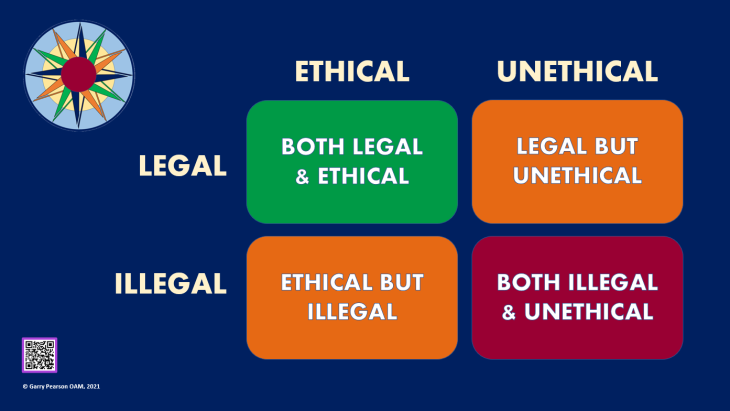Ethical Governance
In today’s rapidly evolving global landscape, the concept of ethical governance has become increasingly crucial. From multinational corporations to governmental bodies and non-profit organizations, stakeholders demand transparency, trustworthiness, and accountability. Ethical governance serves as the cornerstone that upholds these values, fostering sustainable growth and fostering positive relationships with stakeholders.
Understanding Ethical Governance
Ethical governance encompasses a set of principles and practices that guide organizations in making decisions, implementing policies, and conducting operations in an ethical manner. At its core, it emphasizes integrity, fairness, honesty, and respect for stakeholders’ rights and interests. Unlike traditional governance models focused solely on profitability or efficiency, ethical governance integrates moral and ethical considerations into every aspect of decision-making and behavior within an organization. More!
Key Principles of Ethical Governance
- Transparency: Openness and clarity in communication, financial disclosures, and decision-making processes are fundamental to ethical governance. Transparent practices build trust and credibility among stakeholders by demonstrating honesty and accountability.
- Accountability: Organizations practicing ethical governance hold themselves accountable for their actions, decisions, and outcomes. This involves taking responsibility for both successes and failures, learning from mistakes, and implementing corrective measures when necessary.
- Integrity: Upholding high ethical standards and moral principles guides actions and decisions within the organization. Integrity ensures consistency in behavior, regardless of external pressures or temptations.
- Fairness: Ethical governance promotes fairness and equity in all dealings with stakeholders, employees, customers, and the community. Fair practices prevent discrimination, exploitation, or unjust treatment.
- Compliance: Adherence to legal and regulatory requirements is essential in ethical governance. Organizations must not only follow laws but also strive to exceed minimum standards to ensure ethical conduct.
Benefits of Ethical Governance
Implementing ethical governance practices brings numerous benefits to organizations, including:
- Enhanced Reputation: Ethical organizations are perceived positively by stakeholders, leading to enhanced brand reputation and customer loyalty.
- Improved Stakeholder Relations: Transparency and accountability foster trust among stakeholders, including investors, employees, customers, and the community.
- Reduced Risks: Ethical governance reduces the risk of legal issues, regulatory violations, and reputational damage associated with unethical behavior.
- Long-Term Sustainability: By integrating ethical considerations into decision-making, organizations promote long-term sustainability and resilience against economic and social challenges.

Challenges in Implementing Ethical Governance
Despite its benefits, implementing ethical governance can pose challenges for organizations:
- Cultural Change: Shifting organizational culture to prioritize ethics requires commitment from top leadership and may face resistance from entrenched practices.
- Complexity: Balancing ethical considerations with business objectives and stakeholder interests can be complex and may require trade-offs.
- Globalization: Operating in diverse global markets with varying legal and cultural norms necessitates adapting ethical governance practices to different contexts.
Case Studies of Ethical Governance
- Johnson & Johnson: Known for its credo outlining responsibilities to customers, employees, communities, and shareholders, Johnson & Johnson’s ethical governance practices guided its response during product recalls and crises.
- Patagonia: The outdoor apparel company Patagonia is recognized for its commitment to environmental sustainability and fair labor practices, integrating these values into its governance framework.
The Future of Ethical Governance
As society becomes increasingly interconnected and information flows more freely, the importance of ethical governance will continue to grow. Organizations will be expected to demonstrate not only profitability but also ethical integrity in their operations. Embracing ethical governance as a core value ensures organizations remain resilient, trustworthy, and sustainable in an ever-changing global landscape.
Conclusion: Ethical Governance
Ethical governance is not merely a regulatory requirement but a fundamental driver of organizational success and societal impact. By prioritizing transparency, accountability, integrity, and fairness, organizations can build trust, enhance reputation, and foster long-term sustainability. Embracing ethical governance is not just the right thing to do—it is essential for creating a positive future for all stakeholders involved. Through continuous commitment and adaptation, organizations can navigate challenges and seize opportunities while upholding the highest ethical standards.
